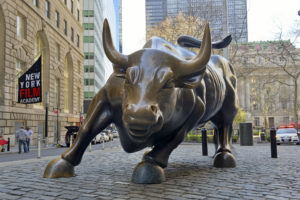Wall Street Still Behaving Badly
By the C|C Whistleblower Lawyer Team
 In the wake of the Great Financial Crisis, there was both a public and private battle cry of “Never Again!” Dodd-Frank was passed with its sweeping regulations to keep Wall Street in check, and federal and state enforcers went on regulatory rampage extracting 9 and10-figure settlements from a who’s who list of the world’s top financial firms. Not many Wall Street institutions have been able to escape the heavy hand of the re-energized Department of Justice and Securities and Exchange Commission that emerged post-recession. Justice is even starting to obtain criminal pleas from some of the more egregious institutional offenders. Not to mention sending more individuals to jail for longer periods of time for their financial misdeeds.
In the wake of the Great Financial Crisis, there was both a public and private battle cry of “Never Again!” Dodd-Frank was passed with its sweeping regulations to keep Wall Street in check, and federal and state enforcers went on regulatory rampage extracting 9 and10-figure settlements from a who’s who list of the world’s top financial firms. Not many Wall Street institutions have been able to escape the heavy hand of the re-energized Department of Justice and Securities and Exchange Commission that emerged post-recession. Justice is even starting to obtain criminal pleas from some of the more egregious institutional offenders. Not to mention sending more individuals to jail for longer periods of time for their financial misdeeds.
So with all this regulatory retribution; this zeroed-in focus on where the big banks have strayed, has Wall Street finally learned its lesson? Does a new sense of ethics and decorum now guide the goings-on of the financial markets? Not even close. In fact, things have gotten even worse. This, according to a just-released report jointly prepared by the University of Notre Dame and the New York law firm Labaton Sucharow. They surveyed more than 1,200 professionals in the United States and the United Kingdom to measure the current state of workplace ethics in the financial services and banking industry. In their own words, the results of what they found “are not pretty.”
Here are some of the highlights:
- 47% of respondents find it likely their competitors have engaged in unethical or illegal activity to gain an edge in the market. This represents a significant increase from the 39% figure reported in 2012.
- 23% believe it likely that fellow employees have engaged in illegal or unethical conduct, nearly double the 12% reported in 2012.
- Almost 20% believe financial services professionals must sometimes engage in illegal or unethical conduct to be successful.
- 27% disagree that the financial services industry puts the best interests of clients first, a figure that rises to 38% for those earning $500,000 or more per year.
- 22% have witnessed or have first-hand knowledge of wrongdoing in the workplace, a figure that rises to 34% for those earning $500,000 or more per year.
With respect to the corporate treatment of whistleblowers, the report’s findings were equally disquieting. Almost one in five say it is likely their employer would retaliate against them if they reported misconduct in the workplace (one in four for UK respondents). And perhaps even more troubling, “an alarming number of people report being subject to corporate policies and confidentiality agreements that they believe prevent them from reporting wrongdoing to outside authorities.” Specifically, 10% of respondents have signed or been asked to sign an anti-whistleblower gag provision that would prohibit reporting to government enforcers (a figure that jumps to 25% for high-earners). And 16% (or 28% for high-earners) report confidentiality policies and procedures that serve the same deterrent effect.
The report ends with the stark admonition that “without an aggressive plan to stamp out misconduct, we are simply sitting and waiting for another financial disaster to strike.” But it offers promise too. “Greed and corruption are not endemic to financial services nor are they critical to its success.” What is needed to end this perpetuating cycle of cynicism and misbehavior is a three-way partnership among the government, employers and employees to embrace a culture of ethics, transparency and honesty. And a critical part in all this is a greater respect and appreciation for whistleblowers.
Tagged in: Financial and Investment Fraud, Financial Institution Fraud,